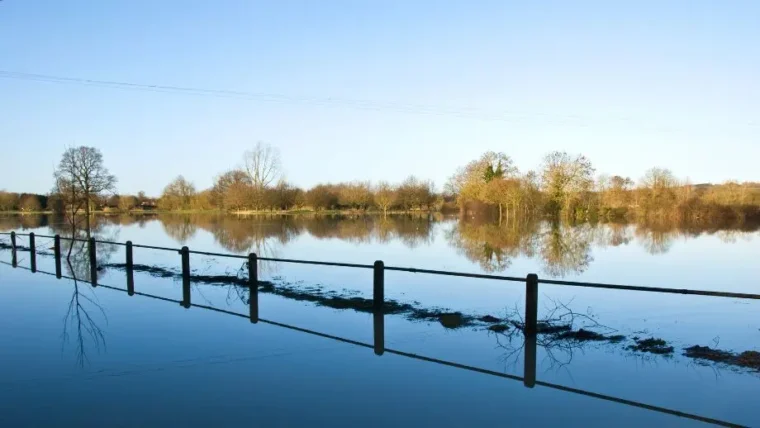Fortnightly Bulletin – 18th December 2023
19 December 2023

Guidance
Medium Combustion Plant (MCP) and Specified Generators (SG) update – England only
Submission date for existing 5-20Mwth MCP permit application expired 30th September 2023.
Standard rules permit applications for existing MCPs 5-20MWth should have been made before 30th September 2023 to allow the Environment Agency the statutory time to determine them and issue a permit before the regulatory deadline of the 1st of January 2024.
Applications made after this date cannot be guaranteed to be permitted by the 1st of January 2024.
Operations which continue to operate without the necessary permit after the 1st of January 2024 may be subject to enforcement action. Submit the permit application as soon as possible to avoid this.
Source: Gov.UK
Medium combustion plant: when you need a permit
This guidance explains when an environmental permit needs to be applied for under the Medium Combustion Plant Directive (MCPD).
The guidance has been updated to include how the rated thermal input (the capacity of the MCP) can be calculated using the net calorific value (CV) not the gross CV.
The net CV can be obtained:
- from the manufacturer,
- by calculating it using Association of Manufacturers of Power generating Systems (AMPS) method,
- by using the combustion engineers association boiler calculations guide for MCPD.
The update to the guidance is the use of the Combustion Engineers Association boiler calculations guide to calculate the net CV of the MCP.
For the full guidance, click here
Carrying out research or trials with waste at sites without an environmental permit
This guidance explains when the Environment Agency will not normally take enforcement action when research or trials using waste is carried out without an environmental permit.
The Environmental Agency will consider creating a Local Enforcement Position (LEP), or in limited cases a Regulatory Position Statement (RPS), for research or trials with waste that:
- involve the development of new ideas, techniques, and processes to recover waste,
- are not repeating information and research available elsewhere, such as previous trials carried out in the UK or abroad,
- should not continue for more than six months,
- are not part of multiple or repeat trials,
- will not distort the market.
The research or trial must not begin until the Environment Agency has approved the details and scope of the proposed research or trial and created a LEP or RPS.
For the full guidance, click here
Using pine trees to restore dunes or protect riverbanks: RPS 236
This RPS applies to the storage and use of waste pine Christmas trees or felled pine trees from forestry management to:
- protect riverbanks from erosion – they can reduce the flow of water and allow riverbanks to regenerate,
- trap wind-blown sand and build up sand dunes – this helps native grass to grow and restores the habitat.
This RPS does not change your legal requirement to have an environmental permit for a waste operation for the storage and use waste pine trees.
However, the Environment Agency will not normally take enforcement action against you if you do not comply with this legal requirement provided that:
- your activity meets the description set out in this RPS,
- you comply with the conditions set out in this RPS.
In addition, your activity must not cause (or be likely to cause) pollution of the environment or harm to human health, and must not:
- cause a risk to water, air, soil, plants or animals,
- cause a nuisance through noise or odours,
- adversely affect the countryside or places of special interest.
The Environment Agency intends to review this RPS by the 30th of November 2026.
This RPS will remain in force until it is removed from gov.uk or is otherwise identified as having been withdrawn.
Source: Gov.UK
For the full guidance, click here
Prosecutions and Fines
Kent firm fined for running an illegal waste site
The director of a skip company in the south-east of England was found guilty and ordered to pay fines and costs totalling approximately £20,000 for running an illegal waste site in Kent, following an investigation by the Environment Agency.
The skip director, who was a sole director, hired two adjoining plots on an industrial trading estate in Kent. Owners of the trading estate became concerned about the skip company’s activities when full skips were being brought back to the yard instead of empty skips being left.
The waste was then tipped in the rear of the yard and caught fire on several occasions. This led to the landowners evicting the company from their premises.
During the Environment Agency’s investigation, they found piles of waste, including aggregate, soils, stone, metal, plastic, wood, and household waste, sometimes 20 feet high. It was apparent that the waste was being tipped illegally as no permits or exemptions were registered at the site.
The director was fined £1,733 and ordered to pay costs and a victim surcharge totalling £7,603, and pay £10,850 compensation to the owners of the trading estate.
Source: Gov.UK
For the full article, click here
Company director given community sentence for illegally dumping waste
A former company director from Epping was given a community sentence and ordered to pay £4,000 towards costs for illegally dumping waste in Gerrards Cross, following a complex investigation by the Environment Agency.
The former company director pleaded guilty to illegally dumping approximately 160 tonnes of waste at closed landfill site in Gerrards Cross, in Buckinghamshire.
The director was sentenced to 120 hours unpaid community service work, ordered to pay £4000 costs and a victim surcharge of £85.
Source: Gov.UK
For the full article, click here
Two companies to pay six-figure undertakings for 2021 packaging obligations breaches
A food production company and a bottle manufacturer commit to pay six-figure enforcement undertaking for failing to meet their 2021 packaging obligations.
An enforcement undertaking is a voluntary offer made by an offender. If accepted by the Environment Agency, the offer becomes a legally binding agreement.
The Environment Agency says it will only accept an enforcement undertaking for cases where it’s not in the public interest to prosecute, the offer addresses the cause and effect of the offending and “protects, restores or enhances the natural capital of England”.
Source: Circular (CIWM)








